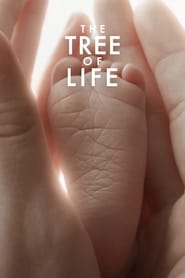— Unless you love, your life will flash by.
I think there are some parts that will always remain too obscure, especially the "heaven is a beach" sequence (á la Contact?) and the Lynchian dream sequence in the A-frame bedroom. But this will almost certainly need a rewatch to, well, understand. Still, we do need more films where Brad Pitt interrupts everyone at the table to say "Brahms!"
It’s one thing to recreate the visual details of a midfifties schoolyard filled with children running and playing—that’s production design. It’s another thing to transmit the liberating, Brueghelesque energy of recess in a contained setting.[…]
As someone who also grew up in middle-class midcentury America, I can simply attest to the rightness of the details: the power-affirming condescension of father to sons, masked as joviality (“And what did you do today, my fine feathered friend?”); the silent, shared liberation of mother and sons when the father leaves for a business trip; Jack’s unforgettable bearing before his father as he watches him play the organ, a mixture of spontaneous admiration and worry that he’s not showing enough of it, embarrassment over his father’s solemnity, pride, and fear that he may not ever do anything as impressive.
— Kent Jones (Criterion)
Mr. Malick might have been well advised to leave out the dinosaurs and the trip to the afterlife and given us a delicate chronicle of a young man’s struggle with his father and himself, set against a backdrop of rapid social change. And perhaps Melville should have suppressed his philosophizing impulses and written a lively tale of a whaling voyage. But the imagination lives by risk, including the risk of incomprehension. Do all the parts of The Tree of Life cohere? Does it all make sense? I can’t say that it does. I suspect, though, that sometime between now and Judgment Day it will.
— A. O. Scott (The New York Times)
The boys are introduced to old-time religion and subjected to the sort of spare-the-rod-spoil-the-child parenting that might have seemed cliché if the man’s sad terrorism of his boys didn’t feel as if it was being observed from the tender point of view of a growing, impressionable child. [Each] parent represents a path, a different branch in the tree of life, and the path they choose, or don’t, may or may not spell their immediate destruction.
— Ed Gonzalez and Niles Schwartz (Slant Magazine)
I will never forget going to see The Tree of Life—for the second time, with my dad, who had no idea what he was getting into—at a theater in Toronto where the manager had posted a handwritten sign above the box office window. In my memory, which isn’t perfect—fitting one of the film’s most resonant themes, the subjectivity and elasticity of memory—it read something like, “Please do not ask for refunds, the movie is supposed to be this way.”[…]
Malick’s reputation as an intellectual precedes him: He was a Rhodes scholar at Oxford who tackled Heidegger and Wittgenstein in his dissertation. But the fact that he never finished his degree matters, too. It ties into the feeling—present in the majority of his movies, but paramount in The Tree of Life—that he’s a kind of perpetual undergrad filtering his big, metaphysical ideas through a series of wise-beyond-their-years mouthpieces. That quality of in-betweenness is crucial: Whether his narrators are living in turn-of-the-century Texas, ’50s-era South Dakota, or the deep forests of The New World, they articulate their observations like emissaries from a teenage wasteland.
— Adam Nayman (The Ringer)
Synopsis: The impressionistic story of a Texas family in the 1950s. The film follows the life journey of the eldest son, Jack, through the innocence of childhood to his disillusioned adult years as he tries to reconcile a complicated relationship with his father. Jack finds himself a lost soul in the modern world, seeking answers to the origins and meaning of life while questioning the existence of faith.

